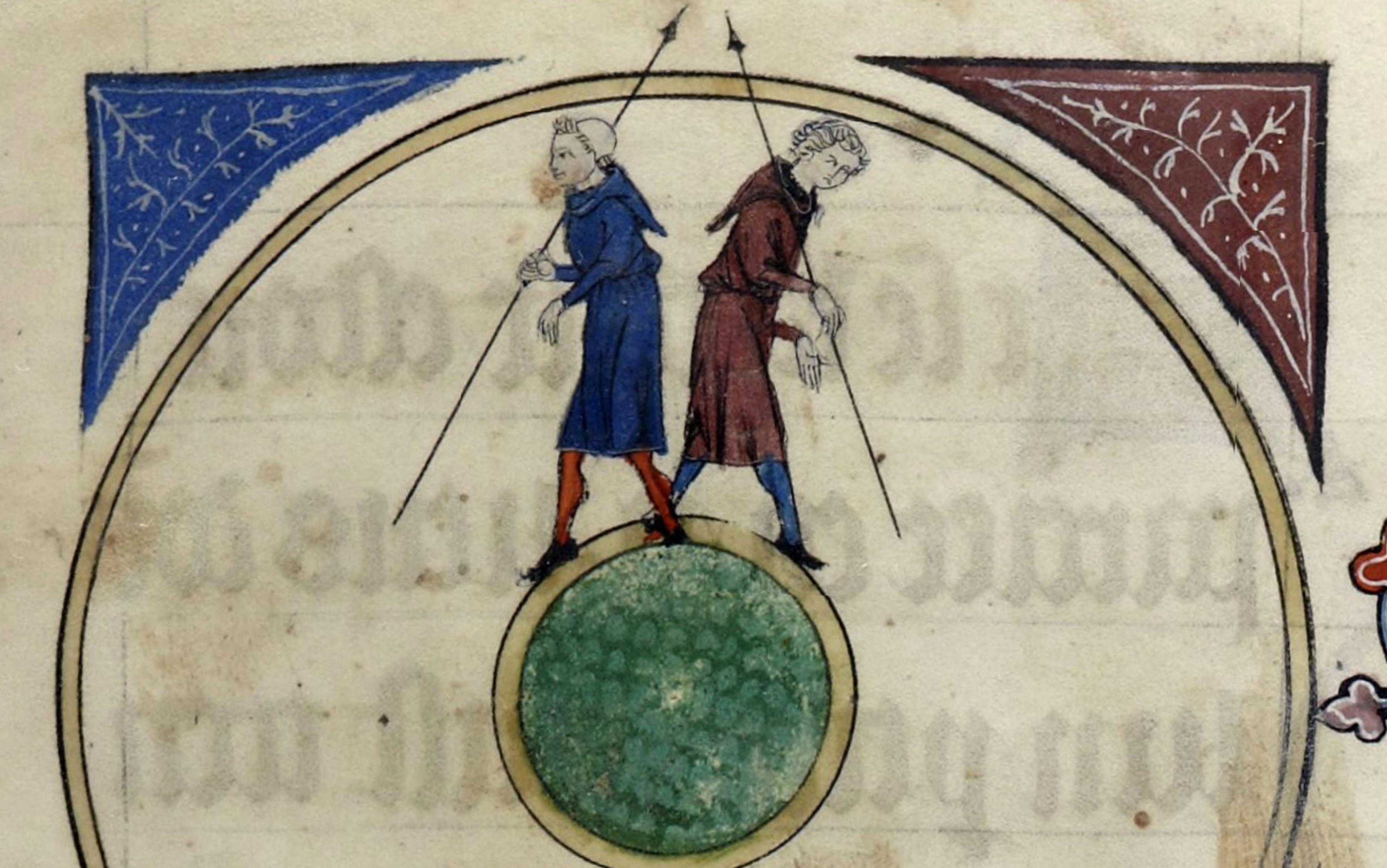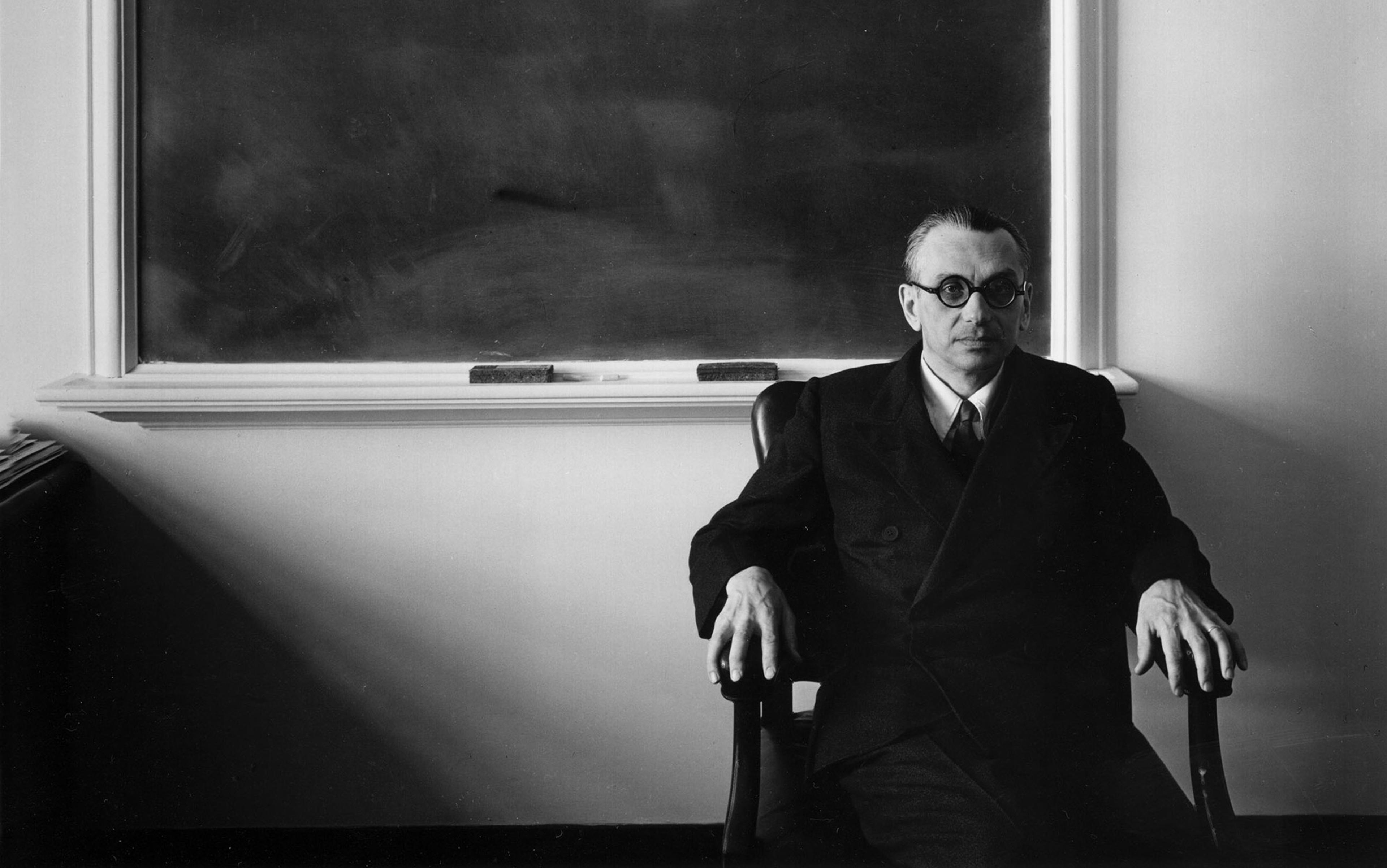Socrates died by drinking hemlock, condemned to death by the people of Athens. Albert Camus met his end in a car that wrapped itself around a tree at high speed. Nietzsche collapsed into insanity after weeping over a beaten horse. Posterity loves a tragic end, which is one reason why the cult of David Hume, arguably the greatest philosopher the West has ever produced, never took off.
While Hume was lying aged 65 on his deathbed at the end of a happy, successful and (for the times) long life, he told his doctor: ‘I am dying as fast as my enemies, if I have any, could wish, and as easily and cheerfully as my best friends could desire.’ Three days before he died, on 25 August 1776, probably of abdominal cancer, his doctor could still report that he was ‘quite free from anxiety, impatience, or low spirits, and passes his time very well with the assistance of amusing books’.
When the end came, Dr Black reported that Hume ‘continued to the last perfectly sensible, and free from much pain or feelings of distress. He never dropped the smallest expression of impatience; but when he had occasion to speak to the people about him, always did it with affection and tenderness … He died in such a happy composure of mind, that nothing could exceed it.’
In his own lifetime Hume’s reputation was mainly as a historian. His career as a philosopher started rather inauspiciously. His first precocious attempt at setting out his comprehensive new system of philosophy, A Treatise of Human Nature (1739-40), published when he was 26, ‘fell dead-born from the press, without reaching such distinction as even to excite a murmur among the zealots’, as he later recalled, with self-deprecating exaggeration.
Over time, however, his standing has grown to the highest level. A few years ago, thousands of academic philosophers were asked which non-living philosopher they most identified with. Hume came a clear first, ahead of Aristotle, Kant and Wittgenstein. Scientists, who often have little time for philosophy, often make an exception for Hume. Even the biologist Lewis Wolpert, who says philosophers are ‘very clever but have nothing useful to say whatsoever’ makes an exception for Hume, admitting that at one stage he ‘fell in love’ with him.
Yet the great Scot remains something of a philosopher’s philosopher. There have been no successful popular books on him, as there have been for the likes of Montaigne, Nietzsche, Socrates, Wittgenstein and the Stoics. Their quotes, not his, adorn mugs and tea towels, their faces gaze down from posters. Hume hasn’t ‘crossed over’ from academic preeminence to public acclaim.
The reasons why this is so are precisely the reasons why it ought not to be. Hume’s strengths as a person and a thinker mean that he does not have the kind of ‘brand’ that sells intellectuals. In short, he is not a tragic, romantic figure; his ideas do not distil into an easy-to-summarise ‘philosophy of life’; and his distaste for fanaticism of any kind made him too sensible and moderate to inspire zealotry in his admirers.
Hume had at least two opportunities to become a tragic hero and avoid the cheerful end he eventually met. When he was 19, he succumbed to what was known as ‘the disease of the learned’, a melancholy that we would today call depression. However, after around nine months, he realised that this was not the inevitable fate of the wise but the result of devoting too much time to his studies. Hume realised that to remain in good health and spirits, it was necessary not only to study, but to exercise and to seek the company of friends. As soon as he started to do this he regained his cheer and kept it pretty much for the rest of his life.
This taught him an important lesson about the nature of the good life. As he later wrote in An Enquiry Concerning Human Understanding (1748): ‘The mind requires some relaxation, and cannot always support its bent to care and industry.’ Philosophy matters, but it is not all that matters, and although it is a good thing, one can have too much of it. ‘Abstruse thought and profound researches I prohibit,’ says Hume, ‘and will severely punish, by the pensive melancholy which they introduce, by the endless uncertainty in which they involve you.’ The life ‘most suitable to the human race’ is a ‘mixed kind’ in which play, pleasure and diversion matter as well as what are thought of as the ‘higher’ pursuits. ‘Be a philosopher,’ advised Hume, ‘but, amidst all your philosophy, be still a man.’
Hume did what any sensible person would do: he went along with the request without any intention of keeping his promise
In 1770, Hume was also presented with an opportunity for martyrdom, in somewhat bathetic circumstances. The Nor’ Loch in Edinburgh, where Princes Street Gardens now stands, was being drained as part of the expansion of the city. Walking across it one day, Hume fell into the bog that still remained. He cried for help but unfortunately for him, the women who heard him recognised him as ‘the great infidel’ and were not inclined to save him. Hume reasonably pointed out that all Christians should help anyone irrespective of their beliefs, but their understanding of the parable of the Good Samaritan was not as up to scratch as his and they refused to save him unless he became a Christian there and then, reciting the Lord’s Prayer and the creed.
A Socrates would perhaps have refused and died in the name of truth. Hume, however, was not going to allow the stupidity of others to cut his own life short, so he did what any sensible person should do: he went along with their request without any intention of keeping his promise.
In this he was following the example of the only other philosopher to rival Hume for all-time greatness: Aristotle. Here is another thinker whose stock among cognoscenti couldn’t be higher, but who has failed to capture the public’s imagination (although Edith Hall’s recent book Aristotle’s Way (2018) is trying to change that). Not coincidentally, I think, Aristotle also refused to play the martyr. Like Socrates, he was condemned to death for impiety. Also like Socrates, he had the opportunity to flee the city to safety. Unlike Socrates, that is exactly what he did. So while everyone knows how Socrates died, few know that Aristotle, like Hume, died in his 60s, probably also of stomach cancer.
It is somewhat perverse that the attractiveness of a philosophy seems to be directly correlated with how miserable its author’s life was. However, that is not the only reason why there are few self-ascribed Humeans outside academe. Hume’s philosophy does not add up to an easily digestible system, a set of rules for living. Indeed, Hume is best known for three negative theses.
First, our belief in the power of cause and effect, on which all our reasoning about matters of fact rests, is not justified by either observation or by logical deduction. We only ever see one thing following another: we never observe any power that makes one thing necessitate an effect. Even if we could be satisfied that we had established x caused y, logic can’t establish any general principle of causation, since all the regularities we have observed in nature were in the past, but the principle of cause and effect is assumed to apply in the present and future. Logically, you can never arrive at a truth about the future based entirely on premises that concern the past: what has been is not the same as what will be.
Hume did not deny cause and effect were real. We could not reason about any matter of empirical fact without assuming their reality, as his own writings frequently do. However, he was clear that this linchpin of sensible thinking is not itself established by reason or experience. This is philosophically strong stuff but hardly the source of inspirational Instagram quotes.
Hume is also well known for his arguments against various aspects of religion, although he never came out as a fully fledged atheist. Most famously, he argued that it would never be rational to accept the claim of a miracle, since the evidence that one had occurred would always be weaker than the evidence that such things never happen. It would always be more likely that the witness to a miracle was mistaken or lying than that the miracle actually took place. But again, skepticism about the claims of traditional religion does not amount to a substantive, positive philosophy.
Hume’s third notable negative claim does have the benefit of a stirring slogan, albeit one that is somewhat opaque: ‘Reason is, and ought only to be, the slave of the passions.’ Reason by itself gives us no motivation to act, and certainly no principles on which to base our morality. If we are good it is because we have a basic fellow-feeling that makes us respond with sympathy to the suffering of others and with pleasure at the thought of them thriving. The person who does not see why she should be good is not irrational but heartless.
As these three core claims illustrate, Hume’s philosophy is essentially skeptical, and skepticism seems to take away more than it offers. However, understood correctly, Humean skepticism can and should be the basis for a complete approach to life. It is built on the skeptical foundations of a brutally honest assessment of human nature, which could be seen as the essence of Hume’s project. It is not accidental that his first attempt to set out his philosophy was called A Treatise of Human Nature. Humanity was his primary subject.
Hume saw human beings as we really are, stripped of all pretension. We are not immortal souls temporarily encaged in flesh, nor the pure immaterial minds Descartes believed he had proved we were. Humans are animals – remarkable, highly intelligent ones – but animals nonetheless. Hume did not just bring human beings down to Earth, he robbed us of any enduring essence. Arguing against Descartes’s claim that we are aware of ourselves as pure, undivided egos, Hume challenged that when he introspected, he found no such thing. What we call the ‘self’ is just a ‘bundle of perceptions’. Look inside yourself, try to find the ‘I’ that thinks and you’ll only observe this thought, that sensation: an ear worm, an itch, a thought that pops into your head.
Hume was echoing a view that was first articulated by the early Buddhists, whose ‘no-self’ (anattā) view is remarkably similar. He also anticipated the findings of contemporary neuroscience which has found that there is no central controller in the brain, no one place where the sense of self resides. Rather the brain is constantly executing any number of parallel processes. What happens to be most central to consciousness depends on the situation.
As for our intellect, Hume demonstrated how extraordinary it could be by rigorously showing how imperfect it really is. Pure reason, of the kind celebrated by Descartes, was largely impotent. Its demonstrations are restricted to proofs concerning ‘the relation of ideas’, the ways in which concepts are logically related to each other. So you can prove 2 + 2 = 4 but that tells you nothing about what happens when you put four things together in nature, where they could obliterate each other, multiply or merge into one. You can show that a female Pope is a logical contradiction, but it doesn’t rule out the possibility that a woman could lead the Catholic Church: evidence rather than logic tells us that the story of Pope Joan is almost certainly false.
Hume never explicitly articulated what the good life was, but he did even better: he showed us by his own example
Most of our ‘reasoning’ is little more than an almost-instinctive ‘association of ideas’. Learning from experience is ‘a species of Analogy’ in which we expect similar things to have similar effects. That’s why Hume had no problem attributing reason to animals. They too evidently ‘learn many things from experience, and infer, that the same events will always follow from the same causes’. We do not of course think that this learning involves ‘any process of argument or reasoning’. But then, neither does most of the learning of human beings – even philosophers. We are guided primarily by ‘custom and habit’.
Humean humans are therefore creatures of flesh and blood, of intellect and instinct, of reason and passion. The good life is therefore one which does justice to each of these characteristics. Hume never explicitly articulated what such a life would consist of, but he arguably did even better: he showed it by his own example. He studied and wrote, but he also played billiards and cooked a sheep’s head broth that had guests talking days later.
Everyone who knew Hume, with the exception of the paranoid and narcissistic Jean-Jacques Rousseau, spoke highly of him. When he spent three years in Paris in later life he was know as ‘le bon David’, his company sought out by all the salonistes. Baron d’Holbach described him as ‘a great man, whose friendship, at least, I know to value as it deserves’. Adam Smith, writing to pass on the news of Hume’s death to his publisher, William Strachan, said, ‘I have always considered him, both in his lifetime and since his death, as approaching as nearly to the idea of a perfectly wise and virtuous man, as perhaps the nature of human frailty will permit.’
If he lived such an exemplary life, why is it not more widely lauded as such? One reason is that Hume’s moral philosophy, and with it his conception of good, is not one which is superficially appealing. Other moral philosophies have stirring slogans expressing easy-to-grasp principles. ‘Act only according to that maxim whereby you can, at the same time, will that it should become a universal law,’ wrote Kant. Utilitarians have Bentham’s line: ‘Create all the happiness you are able to create: remove all the misery you are able to remove.’ ‘Love thy neighbour as thyself,’ said Jesus. Hume advocated no simple principle of morality at all, and it isn’t even clear what it means for him to be good.
For Hume, morality is rooted in nothing more than ‘sympathy’: a kind of fellow-feeling for others which is close to what we now call empathy. Moral principles cannot be derived by logical deductions, nor are they eternal, immortal principles that somehow inhere in the Universe. We behave well to others for no other reason than that we see in them the capacity to suffer or to thrive, and we respond accordingly. Someone who does not feel such sympathy is emotionally, not rationally, deficient.
Few have been satisfied with this account of morality. It looks to many like nothing more than the principle that you should be kind if you feel like it and if you don’t, there’s nothing more to be said. However, I think Hume was fundamentally correct and that far from making us pessimistic about the possibility of human goodness, it should make us more optimistic. If morality is rooted in pure reason, what hope can we have that we will understand and agree on what we ought to do, given that not even the finest minds in history have been able to demonstrate what reason demands of us and why? And if morality is rooted in some kind of extra-human transcendental reality, we are condemned to moral disagreement. But if morality is rooted in nothing more than the capacity to recognise the interests of another, it is something we can all respond to.
The virtues Hume expressed were not extreme ones, but quiet ones of amiability, modesty, generosity of spirit and hospitality
Hume was a great believer in paying attention to evidence and I think experience supports his model of morality better than the main competitors. The best human beings have not been driven by ideology, moral philosophy, and certainly not logic. They have always been people who have put the response to human need above creed or doctrine. Indeed, the worst crimes have been committed by people convinced of a justifying moral principle. The physicist Steven Weinberg was wrong to say that ‘for good people to do evil things, that takes religion’: any rigidly held ideology will do.
But I suspect the main reason why Hume is not upheld as a paragon of virtue is because it did not conform to the heroic models of most civilisations. ‘Great men’ (since women have lamentably rarely been granted greatness) have either been powerful leaders or self-sacrificial saints. To be exceptional is to be more god-like than most, whether that is a powerful deity of myth or the God who died on the cross of Christianity. Hume’s kind of exceptionality is the opposite: he was more fully human than most, nothing more, nothing less. The virtues he expressed were not extreme ones of daring or courage but quiet ones of amiability, modesty, generosity of spirit, hospitality. Lest this sound like little, consider how difficult it is to live our lives consistently expressing such virtues.
Celebrating such a life is difficult because it undeniably depends upon privilege. So many struggle even to stay alive, so many live in war zones, that no wonder we prefer to praise those whose self-sacrificial acts help others. But the Humean good life, like that of Aristotle, points to what all that altruism is supposed to lead to. We want to eliminate poverty, disease and war so that people can get on and live flourishing, productive lives, like that of David Hume. In a better world, we would have no need of heroes.
Skepticism is central to this Humean good life. Not the ‘excessive’ Pyrrhonic skepticism that suspends judgment on everything, but a ‘mitigated’ skepticism that corrects our natural dogmatism. Hume was anticipating the findings of contemporary psychology when he observed, ‘The greater part of mankind are naturally apt to be affirmative and dogmatical in their opinions; and while they see objects only on one side, and have no idea of any counter-poising argument, they throw themselves precipitately into the principles, to which they are inclined; nor have they any indulgence for those who entertain opposite sentiments.’ Here we find confirmation bias and motivated thinking avant la lettre.
This fundamental moderation is, I think, another reason why Hume has never become a popular philosopher. He is just too damned sensible. Reasonableness and balance are seen as boring, signs of lack of spark or originality. Hume was always suspicious of what he called ‘enthusiasts’ and it is perhaps telling that the meaning of this word now has an unambiguously positive meaning. We would do well to remember that the word derives from the Greek entheos: having a god (theos) within. To be an enthusiast in Hume’s sense is to forget one is human and act as though one were a god, sufficient in reason and knowledge to be entirely confident about what one believes.
Hume knew that this error was all the more likely when we believed we knew God and his intentions. In his essay ‘Of Superstition and Enthusiasm’ (1741) he described how ‘the mind of man’ is ‘subject to an unaccountable elevation and presumption’. In this state of mind, humanity gets above itself, thinking it has within it the divine. This gives rise to a form of ‘false religion’ in which ‘no sublunary beauties or enjoyments can correspond’ and ‘every thing mortal and perishable vanishes as unworthy of attention’. The best prophylactic against this is to fully embrace our humanity and, with that, humility, accepting our limitations. Secular enthusiasts who elevate human rationality and nobility too highly make the very same mistake, creating a kind of godless religion of humankind which is just as pernicious.
If ever there were a time in recent history to turn to Hume, now is surely it. The enthusiasts are on the rise, in the form of strongman political populists who assert the will of the people as though it were absolute and absolutely infallible. In more settled times, we could perhaps use a Nietzsche to shake us out of our bourgeois complacency, or entertain Platonic dreams of perfect, immortals forms. Now such philosophical excesses are harmful indulgences. Good, uncommon sense is needed more than ever.
We also desperately need the right kind of skepticism to replace the weary, global shrug that allows people to dismiss climate change as a hoax or the judgments of experts as conspiracies. Humean skepticism is an antidote to hubris, not a recipe for inaction or an excuse to defer to prejudice. Hume’s mitigated skepticism rests on the principle that we should proportion our beliefs to the evidence, not doubt the value of any of it. Hume would not be a climate change skeptic but skeptical of our glib assumption that whatever happens, we’ll be okay.
The problem for fans of Hume is how we can be enthusiastic advocates of someone so opposed to enthusiasm. If the case for Hume is to be made in Humean terms, it has to be gently but eloquently argued for. More importantly still, perhaps, it has to be demonstrated. True lovers of the secular, reasonable way of life Hume stood for ought to avoid hysterical condemnations of religion and superstition as well as overly optimistic praise for the power of science and rationality. We should instead be modest in our philosophical pretensions, advocating human sympathy as much, if not more, than human rationality. Most of all, we should never allow our pursuit of learning and knowledge to get in the way of the softening pleasures of food, drink, company and play. Hume modelled a way of life that was gentle, reasonable, amiable: all the things public life now so rarely is.






